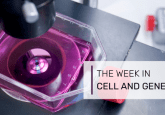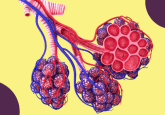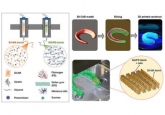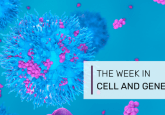Top 3 grants in regenerative medicine: April 2024
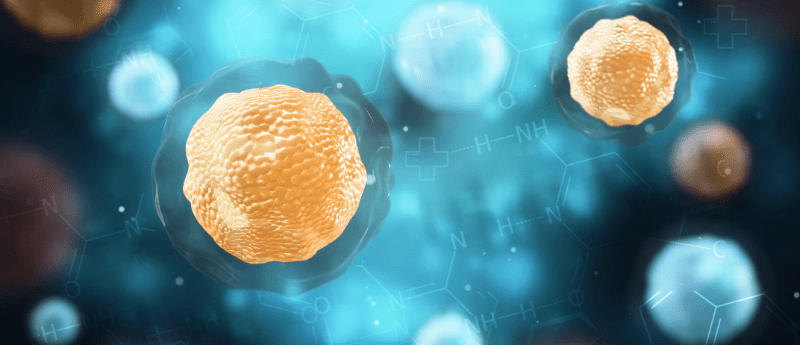
This month’s top grants in regenerative medicine, sourced from Dimensions, include projects that present an extracellular vesicle therapy for muscle repair, the utilization of a hydrogel for local delivery of DNA minicircles to improve cardiac function post-heart attack and an investigation of how intra-islet endothelial cells affect the maturation and function of islet organoids.
Check out this month’s top grants in regenerative medicine:
Extracellular vesicle therapy for muscle repair
Muscle repair follows a defined process involving degradation, inflammation, regeneration and remodeling. Severe injuries, however, overwhelm this process, leading to muscle wasting, reduced muscle function and fibrous muscle tissue.
This study aims to tackle muscle wasting by investigating stromal-derived factor 1, known for promoting stem-cell migration and survival and Transforming Growth Factor-beta 1, which triggers fibrosis. The study plans to use extracellular vesicles (EVs) from Mesenchymal Stem Cells (MSCs) that have been engineered to overexpress either stromal-derived factor 1 or to act as an inhibitor of Transforming Growth Factor-beta 1 called sTBRII. These EVs will be encapsulated in poly(lactic-co-glycolic acid) nanospheres, which will have defined degradation rates to allow for controlled release of the therapeutic EVs.
The researchers will investigate the impact of the encapsulated EVs on myoblasts and fibroblasts, two cell types crucially involved in muscle repair and remodeling processes.
Funding amount: Undisclosed
Funding period: 1 April 2024 – 30 September 2024
Funder: São Paulo Research Foundation (Brazil)
Research organization: Faculdade de Ciências Médicas da Santa Casa de São Paulo (Brazil)
Hydrogel delivery of DNA minicircles to improve cardiac function post heart attack
Clinical and preclinical trials have shown promise for the recombinant protein neuregulin-1b (NRG1) in improving cardiac function following a heart attack. Unfortunately, the effectiveness of NRG1 is limited by two main challenges: poor retention upon injection into the heart muscle and rapid degradation.
To address these limitations, this research project proposes utilizing an injectable hydrogel, previously designed by Stanford researchers, that contains DNA minicircles (MC) encoding NRG1 to enable long-term in situ production of NRG1. The researchers will design and produce the MC-NRG1 then validate it in vitro using cardiomyocytes derived from human induced pluripotent stem cells.
Finally, the efficacy of the MC-NRG1 hydrogel treatment will be assessed in a rat model of myocardial infarction (heart attack), analyzing gel retention, cardiac geometry and function, as well as transgene expression.
Funding amount: US$67,388
Funding period: 1 April 2024 – 1 April 2026
Funder: American Heart Association (TX, USA)
Research organization: Stanford University (CA, USA)
Understanding the impact of intra-islet endothelial cells on islet organoids
Diabetes is an autoimmune condition characterized by the body’s immune system attacking the insulin-producing β cells in the pancreatic islets. This leads to a decrease in insulin production and disrupts the regulation of blood glucose levels. Transplanting pancreatic β cells derived from human induced pluripotent stem cells (hiPSCs) is a promising treatment option for diabetes. These hiPSC-derived β cells provide an unlimited cell source and allow for genetic modifications to boost revascularization, immune protection and graft survival.
hiPSC-derived β cells mature in vivo, with intra-islet endothelial cells (ECs) playing a pivotal role in the function of adult β cells and survival post-transplantation. This research seeks to investigate the effect of ECs in vitro and test the hypothesis that ECs are crucial to generate mature and functional hiPSC-derived islet organoids. The researchers will employ genetic interventions and technologies such as whole tissue three-dimensional analysis and transcriptomics to characterize the effect of ECs on islet organoids, aiming to enhance understanding of the structure-function relationship in human islet organoids and potentially uncovering targets for new cell therapies.
Funding amount: US$190,084
Funding period: 1 April 2024 – 31 March 2026
Funder: European Commission (Brussels, Belgium)
Research organization: Université Libre de Bruxelles (Brussels, Belgium)

